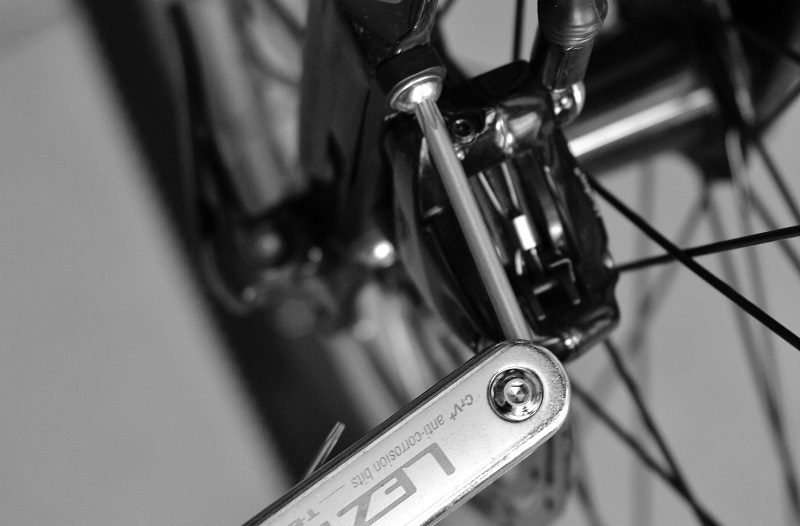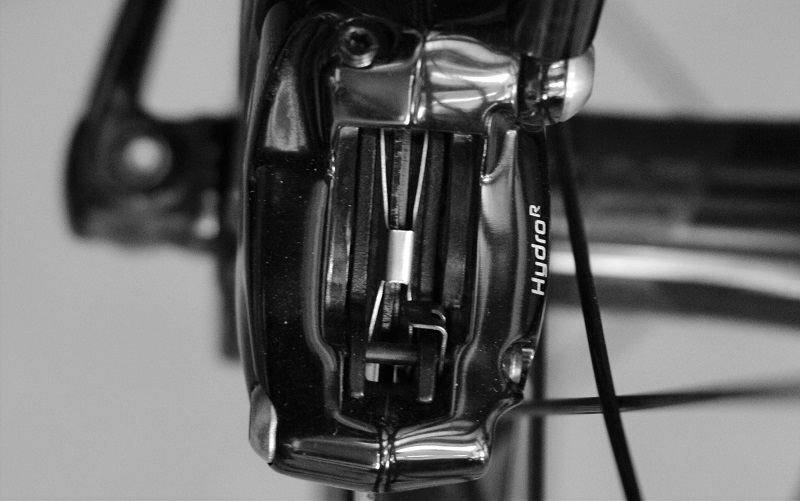With road bike disc braking becoming more and more common, and seemingly looking set to take over the road bike world, how should we look after them? Here are our tip tips for keeping your disc stoppers in good health.

Care Out
Travelling or packing your bike inside a car can raise an extra issue with disc brakes. The levers shouldn’t be activated without rotors in – the two pistons can pop out or become stuck. The best way to avoid this is to pop a couple of little wedges into the gaps between the brake pads, a piece or card or folded paper will do the trick.
Avoid OIL!
Any oily residue on rotors or pads will wreck your braking performance. Avoid liberally spraying degreaser or dropping oil on the rotors, while cleaning your bike either mask off your rotors or drop out the wheels. If you accidentally contaminate your braking, use a specialist cleaner such as Fenwicks disc brake cleaner.

Dont knock your rotors
While rotors look solid enough, be careful not to give them a knock. Any slight deviation from flat can lead to the rotor catching on the pads on each revolution.
Rotor rub
Just like your bike’s wheel rim catching on the brake blocks in the ‘olden days’, disc rub is frustrating. Luckily though the solution is straight forward and only usually requires a trusty old 5mm allen key or a Torx key. Loosen the two disc caliper mounting bolts and apply the brake. The pistons should centre themselves on the rotor. Tighten the mounting bolts and job done.

Bleeding time?
After some time braking performance may well start to fade. Fear not, bleeding the brakes should get them back to their best. There are two options for a brake bleed: Firstly, take your bike to your local bike shop and ask them to bleed the brakes. The second option is to buy a bleed kit (compatible with your bike’s brakes) and do it yourself.
Pad Wear
If you are heavy on your brakes, check for pad wear every few weeks, have a look at the wear on the brake pads. As the pads get thinner and closer to the metal backing plate, it is time to replace your brake pads.

Pad it Out
There are three types of brake pad, these have different attributes. The best pads for your bike depends on what type of riding you do.
Sintered / Metal pads last the longest and are hard-wearing. They are ideal to counter heat build up too, (could be an issue on long descents) because they don’t glaze over. Sintered pads can also be noisy at times and take longer to bed in than organic ones, another downside is that they can be harder on rotors.
Organic pads are quick to bed in and have a strong initial bite when they are applied. The downside with organic is that they can glaze over when heat builds up, they can also wear quicker than sintered.
Semi Sintered Pads (half organic and half sintered) offer a good mix of the two. The downside to these is that they can be more expensive.
Click here for rotors, bolts and adapters.
Click here for disc pads.
Click here for bleed kits.
